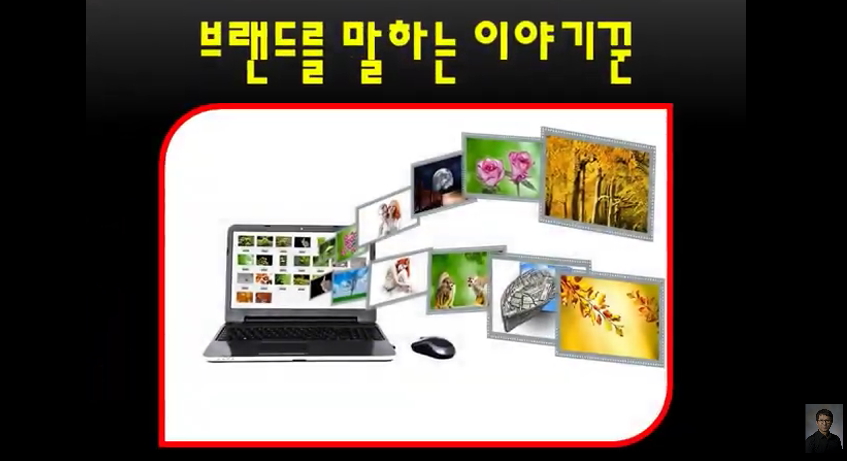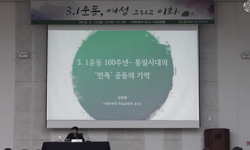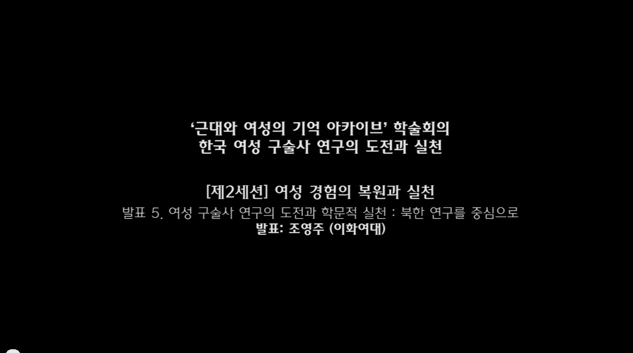본 논문은 20~30대 한국 여성이 바라보는 러시아 국가, 국민의 이미지에 관한 연구이다. 이를 위하여 민족문화의 범주를 질적으로 규정할 수 있는 이론적 근거를 제시하고, 그에 따라 응답자...
http://chineseinput.net/에서 pinyin(병음)방식으로 중국어를 변환할 수 있습니다.
변환된 중국어를 복사하여 사용하시면 됩니다.
- 中文 을 입력하시려면 zhongwen을 입력하시고 space를누르시면됩니다.
- 北京 을 입력하시려면 beijing을 입력하시고 space를 누르시면 됩니다.
https://www.riss.kr/link?id=A87002418
- 저자
- 발행기관
- 학술지명
- 권호사항
-
발행연도
2011
-
작성언어
Korean
-
주제어
민족문화 ; 국가 이미지 ; 브랜드 ; 러시아 ; 한국 여성 ; National Culture ; Nation Image ; Brand ; Russia ; Korean Women
-
KDC
309
-
등재정보
KCI등재
-
자료형태
학술저널
-
수록면
97-123(27쪽)
-
KCI 피인용횟수
7
- DOI식별코드
- 제공처
- 소장기관
-
0
상세조회 -
0
다운로드
부가정보
국문 초록 (Abstract)
본 논문은 20~30대 한국 여성이 바라보는 러시아 국가, 국민의 이미지에 관한 연구이다. 이를 위하여 민족문화의 범주를 질적으로 규정할 수 있는 이론적 근거를 제시하고, 그에 따라 응답자가 국가의 이미지를 배타적으로 구별, 응답할 수 있는 범주를 찾았다. 브랜드 이론에 근거한 5범주(역사, 언어, 사회, 가족, 종교)와 호프슈테더의 문화적 토대인 5범주(우정, 순종성, 남성성, 강인성, 집단성)를 기준으로 했다. 연구결과, 한국 여성에게 러시아의 이미지는 전반적으로 부정적이다. 이들은 러시아의 역사가 전쟁과 공산주의로 점철되고 있었다고 판단하며, 러시아가 채택했던 공산주의 체제의 이미지를 강압과 냉혹함의 이미지와 함께 투영하고 있다. 러시아는 소련의 아류로서 냉소적이고, 차가우며, 공산주의의 지배력이 아직도 잔재한 사회로 한국 여성의 뇌리에 각인되어 있다. 접촉성 혹은 소통 가능성의 측면을 측정하는 러시아 국민에 대한 이미지 또한 부정적인 차원을 벗어나지 못하고 있다. 가족에 대한 이미지로서는 다양한 단어가 추출되었으며, 러시아 국민에 대한 긍정과 부정이 반반(48% vs 52%) 정도 우정의 이미지를 지니고 있다. 반면, 나머지 이미지로서 러시아의 과거 냉전 이미지로 러시아 국민들마저 판단하고 있다. 한국 20~30대 여성들에게 러시아는 ``경직``, ``강압``, ``폐쇄``, ``차가움``, ``냉혹``, ``무서움``의 이미지이다. 이와 같은 자유 민주사회 VS 폐쇄 공산사회의 이데올로기적 이미지를 20~30대 한국 여성은 극복하지 못한다. 과거로부터 만들어진 이미지는 20~30대 한국 여성에게 순종적이지 못한 남성, 집단의 이미지로 러시아를 바라보게 한다. 이와 같이 피상적 소통의 차원에서 러시아는 20~30대 한국 여성에게 부정적이지만, 이들에게 러시아는 확증하기는 어려운 불확실한 이미지로서 존재한다는 것 또한 알 수 있었다. 국가의 이미지는 고정적이지 않고 변화한다. 국가의 이미지는 국가 스스로 규정하는 것이 아니라, 남들에 의해 규정되는 ``남의 눈에 비친 이미지``다. 본 연구는 러시아를 모델로 삼아 한 국가가 특정 시장에 나아가 자신을 각인하는 데서 ``이미지로서의 정체성``을 어떤 방식으로 구성하고 있는가를 탐구했다.
다국어 초록 (Multilingual Abstract)
This study is the first report among the three-phased research on Russia`s national image, the image on the nation, its people and the government held in the minds of Korean women in their twenties and thirties. To study the image on Russia, the theor...
This study is the first report among the three-phased research on Russia`s national image, the image on the nation, its people and the government held in the minds of Korean women in their twenties and thirties. To study the image on Russia, the theoretical grounds to qualitatively define ethnic culture were proposed for the purpose of identifying the categories of responses that enable respondents to differentiate a nation`s exclusive image: 5 categories based on brand theories (history, language, society, family and religion); another 5 categories based on Hofstede (friendship, submissiveness, masculinity, toughness and collectivism); 3 basic categories for the image of a government (foreign policy, government operation and communication with the public). In general, Russia has negative national image. It is believed to have the history riddled with wars and socialism, and socialism projects oppressive and heartless cold image. The history of oppressiveness and coldness is overlapped with the outdated image of the traditional Russian society to make Russia be deeply engraved in the minds of Korean women as a society that is cynical and cold, and has the legacy of socialism. In the eyes of Korean women, the people of Russia are not submissive, but have a masculine and even collective image. The high rate of aggressiveness, adventurousness and toughness did not create the image of a strong and reliable man, but the one that is similar to men`s ruggedness. At this time when the Russian government celebrates its 20th anniversary of its establishment, it is still viewed by Korean women as a non-democratic, unequal and hierarchic government. According to the principle that a government represents its people in a modern society, the Russian government represents 50% percent of the image of its people held by Korean women, but suspicion remains on the representativeness. A nation`s image is not defined by its people and government, but by the others. In other words, it is the image reflected in the eyes of the others. By studying Russia as a model, this paper explores how a country develops ``identity as its image`` to make itself known in a specific market. Russia`s national image, and the image of its people and the government have almost failed to communicate and promote the history, tradition, ideology, friendship, family and social values, democracy and equality that Russians have desired to guard and protect. They need to be better communicated for due recognition outside the nation.
참고문헌 (Reference)
1 코틀러, 필립, "필립 코틀러의 마케팅 A to Z" 세종연구원 2003
2 캘러웨이, 조, "카테고리 원 브랜드전략" 김앤김북스 2005
3 셈프리니, 안드레아, "이은영 옮김" 케뮤니케이션북스 2004
4 호프슈테더, 기어트, "세계의 문화와 조직" 학지사 1995
5 김항원, "사회와 아이덴터티" 문우사 1991
6 손일권, "브랜드 아이덴티티" 경영정신 2003
7 홀, 스튜어트, "모더니티의 미래" 현실문화연구 2000
8 방교영, "러시아와 그 적들 그리고 거짓말" 한국외국어대학교 출판부 2011
9 안홀트, 사이몬, "국가 브랜드, 국가 이미지" 커뮤니케이션북스 2003
10 Keller, Kevin, "Strategic Brand Management: Building, Measuring, and Managing Brand Equity" Prentice-Hall Inc. 1998
1 코틀러, 필립, "필립 코틀러의 마케팅 A to Z" 세종연구원 2003
2 캘러웨이, 조, "카테고리 원 브랜드전략" 김앤김북스 2005
3 셈프리니, 안드레아, "이은영 옮김" 케뮤니케이션북스 2004
4 호프슈테더, 기어트, "세계의 문화와 조직" 학지사 1995
5 김항원, "사회와 아이덴터티" 문우사 1991
6 손일권, "브랜드 아이덴티티" 경영정신 2003
7 홀, 스튜어트, "모더니티의 미래" 현실문화연구 2000
8 방교영, "러시아와 그 적들 그리고 거짓말" 한국외국어대학교 출판부 2011
9 안홀트, 사이몬, "국가 브랜드, 국가 이미지" 커뮤니케이션북스 2003
10 Keller, Kevin, "Strategic Brand Management: Building, Measuring, and Managing Brand Equity" Prentice-Hall Inc. 1998
11 Hofstede, Geert, "Motivation, Leadership, and Organization: Do American Theories Apply Abroad?" 9 (9): 1980
12 Aaker, David A, "Managing Brand Equity" Free Press 1991
13 Aaker, Jennifer L, "Dimensions of Brand Personality" 34 (34): 1997
14 Triandis, Harry, "Cross-Cultural Studies of Individualism and Collectivism" 1989
15 Samovar, L.A., "Communication Between Cultures" Wadsworth, Cengage Learning 2010
16 Aaker, David A, "Building Strong Brands" Free Press 1995
17 Upshaw, Lynn, "Building Brand Identity: A Strategy for Success in a Hostile Marketplace" John Wiley & Sons 1995
18 Muniz, Jr., Albert M, "Brand Community" 27 (27): 2001
19 Goffman, Erving, "Behavior in Public Places: Notes on the Social Organization of Gatherings" Free Press 1959
동일학술지(권/호) 다른 논문
-
러시아 연해주 농업협력과 한국의 중장기 비전 및 전략 연구
- 한국외국어대학교 러시아연구소
- 강명구 ( Meang )
- 2011
- KCI등재
-
19세기 러시아 제국의 형성과 러시아성 담론: Russianness 신화와 민족지 기행을 중심으로
- 한국외국어대학교 러시아연구소
- 김상현 ( Sang Hyun Kim )
- 2011
- KCI등재
-
- 한국외국어대학교 러시아연구소
- ( Jin Woo Park )
- 2011
- KCI등재
-
- 한국외국어대학교 러시아연구소
- 이홍섭 ( Hong Sub Lee )
- 2011
- KCI등재
분석정보
인용정보 인용지수 설명보기
학술지 이력
| 연월일 | 이력구분 | 이력상세 | 등재구분 |
|---|---|---|---|
| 2027 | 평가예정 | 재인증평가 신청대상 (재인증) | |
| 2021-01-01 | 평가 | 등재학술지 유지 (재인증) |  |
| 2018-01-01 | 평가 | 등재학술지 유지 (등재유지) |  |
| 2015-01-01 | 평가 | 등재학술지 유지 (등재유지) |  |
| 2011-01-01 | 평가 | 등재학술지 유지 (등재유지) |  |
| 2009-09-02 | 학술지명변경 | 외국어명 : The Korean Journal of Slavic Studies -> The Korean Journal of Slavic Studies |  |
| 2009-09-01 | 학술지명변경 | 외국어명 : 미등록 -> The Korean Journal of Slavic Studies |  |
| 2009-01-01 | 평가 | 등재학술지 유지 (등재유지) |  |
| 2007-01-01 | 평가 | 등재학술지 유지 (등재유지) |  |
| 2006-01-17 | 학술지명변경 | 한글명 : 슬라브연구 -> 슬라브硏究 |  |
| 2004-01-01 | 평가 | 등재학술지 선정 (등재후보2차) |  |
| 2003-01-01 | 평가 | 등재후보 1차 PASS (등재후보1차) |  |
| 2001-07-01 | 평가 | 등재후보학술지 선정 (신규평가) |  |
학술지 인용정보
| 기준연도 | WOS-KCI 통합IF(2년) | KCIF(2년) | KCIF(3년) |
|---|---|---|---|
| 2016 | 0.58 | 0.58 | 0.52 |
| KCIF(4년) | KCIF(5년) | 중심성지수(3년) | 즉시성지수 |
| 0.44 | 0.41 | 0.844 | 0.33 |




 KCI
KCI KISS
KISS







